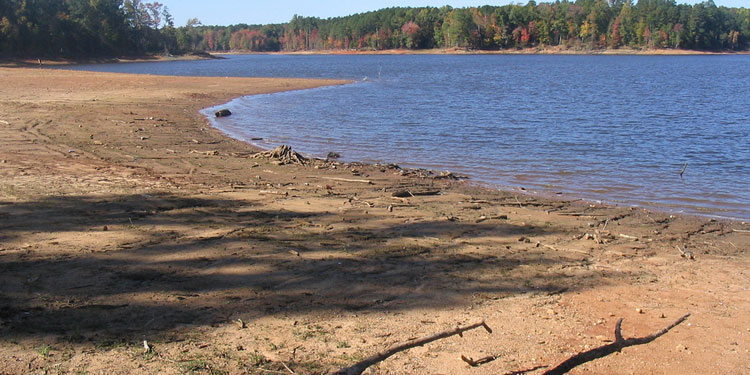July 20. The Catawba-Wateree Drought Management Advisory Group says our region is officially in the midst of a drought. We’re in Stage 1, the second of five drought stages which means voluntary water conservation by water users, in addition to operational adjustments by Duke Energy.
- Irrigate on Tuesdays and Saturdays between 6 pm—6am.
- Limit landscape watering of no more than one inch of water per week, this includes rain
- Conserve all water use indoors and outdoors
- Please refrain from outdoor water use during the day (6am to 6pm) to reduce evaporation losses
- Please refrain from filling pools
- Only top off swimming pools on Thursday and Sundays, between 6pm – 6am
- Discontinue operation of fountains and other ornamental water features that do not sustain aquatic animal life
- Do not wash vehicles at home, please use commercial car wash locations that recycle water instead
Refrain from residential power washing
Commercial Customer Voluntary Restrictions
- Businesses should educate employees and customers about water conservation practices
- Charity groups should consider alternatives to car washes for fundraising activities
- Property managers should repair known water leaks and increase plumbing inspection frequency
Fleet managers should reduce car washing frequency
Duke Energy starts reducing water releases from the dams at Stage 0 and continues with Lake Level adjustments and additional release modifications when the region meets the thresholds for Stage 1 or higher.
Earlier this month, the Catawba-Wateree River Basin entered Stage 0, a drought watch stage. After observing declining trends in the triggers, the group decided to proactively declare Stage 1 conditions. Data collected to make drought stage decisions includes the US Drought Monitor, measurements from a network of watershed streamflow gauges and lake levels.
The last time Charlotte Water declared Drought Stage 1 conservation efforts was in 2011. During the Drought of Record (’08-’09), prolonged hot and dry conditions through 2008 and into 2009 moved the region from Drought Stage 1 through Stages 2 and 3. Mandatory water use restrictions are called for when the utility reaches Drought Stage 2 or higher.


Discussion
No comments yet.